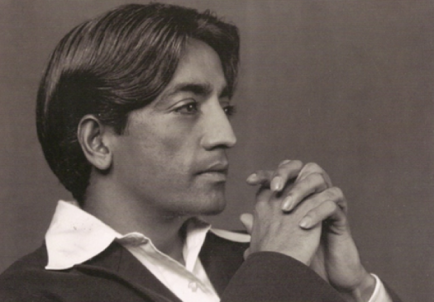

It is this paradox that makes Krishna difficult to understand. Transcendence is only possible when you choicelessly accept both parts together, when you accept the whole.” What we call transcendence is not possible so long as you are in conflict, so long as you choose one part and reject the other. Krishna accepts the duality, the dialectics of life altogether and therefore transcends duality. What kind of non-violence is it that is scared of violence? And how can the spirit, the soul, fear the body and run away from it? And what is the meaning of God if he cannot take the whole of this world in his embrace?” And of what worth is that nectar which is afraid of death? One who knows the secret of non-violence should cease to fear violence. In fact, one who knows the deathless should be free of the fear of death. He accepts the nectar, and yet he is not afraid of poison. His heart is utterly non violent, yet he plunges into the fire and fury of violence when it becomes unavoidable. He is full of love and compassion, and yet he has the courage to accept and fight a war. As one who has known and experienced God, he alone does not turn his face from war.

He does not shun love being a man he does not run away from women. He alone does not choose he accepts life unconditionally. He accepts life in all its facets, in all its climates and colors. Quoting some of His commentaries on Krishna, no-one else could have said it better. His spiritual philosophy was also based on celebrating life as a means to worship. Osho, one of the best philosophers of recent times, was a Jain from Madhya Pradesh who started his own commune with no affiliate to any religion. And this quality makes Krishna so vast he is difficult to comprehend. He is truly an example of how one can live like a lotus in muddy water, ever shining and not let a spec of dirt corrupt or stain it. Religion should be both, celebration of this life, and preparation for the after life. The fact that Krishna gives us the cream of advaita knowledge in the most poetic way through Geeta, and the same Krishna plays flute and sings and dances and celebrates, shows that religion need not be against life, not based on negation and abnegation. In the long chain of spiritual masters, from ancient Indian rishsis, to Buddha, Mahavira and Christ, there comes one Krishna and gives us a completely new perspective on spirituality.


 0 kommentar(er)
0 kommentar(er)
